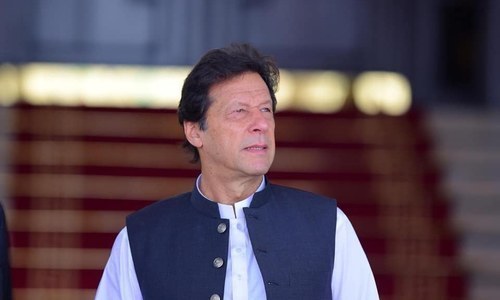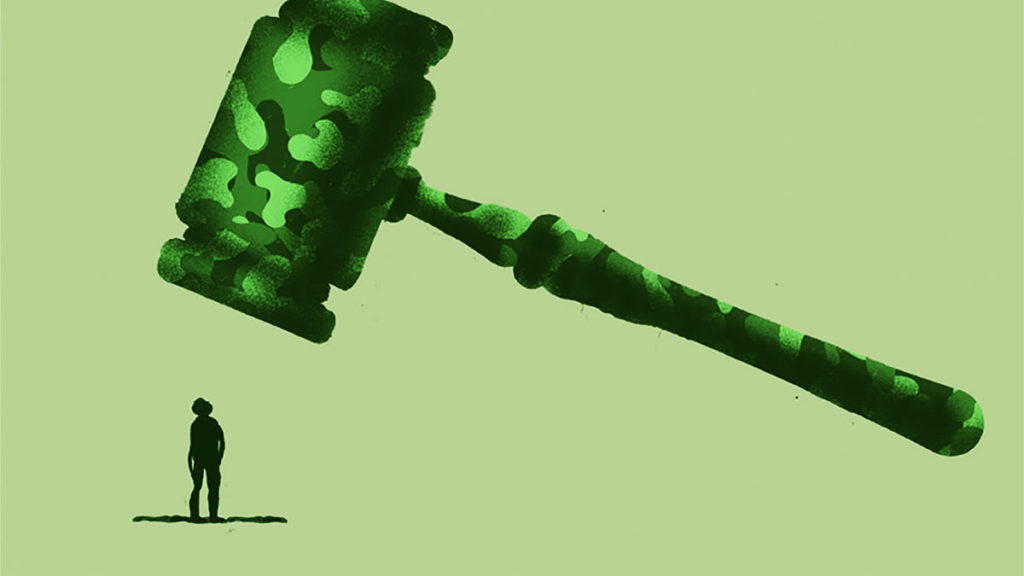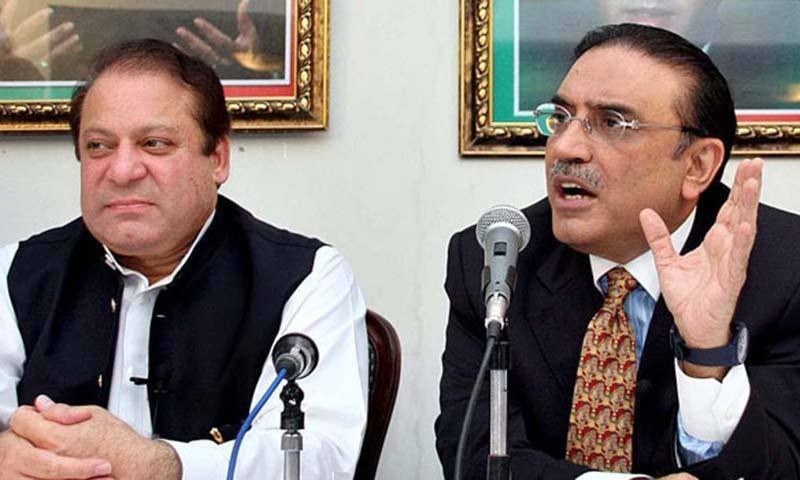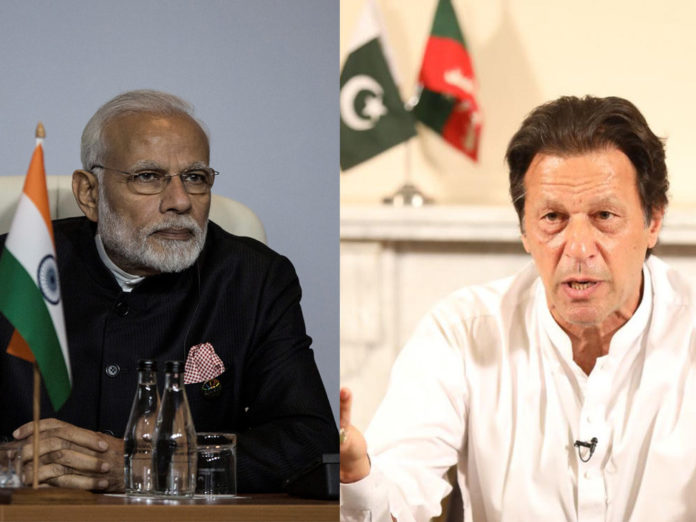Dear Readers,
Surrounded by threats and challenges both internal and external, Pakistan’s security patterns of internal challenges include bad governance, corrupt and fragile institutions, political instability, weak economy, etc. A principle challenge is militancy and extremism that has taken thousands of innocent lives. We live in a hostile neighbourhood where Pakistan’s relations with India, Afghanistan and to an extent Iran make it difficult to focus on domestic problems because these three, coupled with the war on terror pose a continuing security dilemma. A law allowing military courts to try civilians on terror charges is due to expire in March 2019 but it is still unclear whether the govt will extend the law, given criticism of the courts’ legality and opposition by some political parties who are content playing politics for their own vested interests. These courts were established after consensus in Parliament for speedy trials and punishment of terrorists and hard core criminals. Judges of civilian courts have been threatened by militant groups, lawyers killed for prosecuting extremists and some judges even fled the country fearful of their lives. Liberal politicians were killed for speaking against the blasphemy laws or in favor of secular legislation, the perpetrators of many such crimes still remain at large. Despite criticism, military courts have enjoyed considerable public support in Pakistan because people can see justice being dispensed and the guilty punished. Military courts are a vital deterrent against terrorists and are essential if the remaining flash points of terrorists and anti-social elements are to be eliminated. Also, it is about time the govt became serious about implementing the promised reforms to strengthen the ordinary criminal justice system. For the benefit of readers my article “Fighting Terrorism: Extra-Ordinary Situations Require Extra-Ordinary Solutions” is reproduced below:

The proof of Imran Khan regime’s political skill will be seen in overcoming egos and dissent in getting extension for the military courts in Pakistan with the current two-year term ending on 7 January 2019. Despite having less than cordial relations with the political opposition the govt will have to create a common stand on the issue. The Opposition has already tacitly rejected the extension of the military courts that according to their arguments these go against democracy and human rights. They were singing an entirely different tune on the receiving end while in govt.
Four years after the installation of the military courts it is worthwhile to recall the situation that made it possible to create a consensus across political divisions for their installation. The courts were established in 2015 in the aftermath of Army Public School (APS) massacre of 140 people, overwhelmingly children. Four years later many of us may have forgotten the terror of that day, the tears of the children and families. We should not allow the memories of our deep anguish and anger be forgotten among the multiple little problems of our daily lives. To remind the critics of military courts who now seen so concerned about human rights and democracy: what and where were the human rights of those children then? Human Rights and democracy cannot co-exist in a sphere were terrorism raises its ugly head! While the families of those who perished will never forget neither should the country, in particular the elected representatives whose responsibility it is to protect the life and liberty of the citizen they represent. The horror of this attack on school children enabled Nawaz Sharif government to create military courts to carry out swift justice in terrorist cases so as to contain the menace of terrorism in our country.
The parliament again granted a two-year extension to military courts in 2017 because they proved to be an effective means to contain terrorism in the country. The fact of the matter is that Pakistan’s judicial system is not effective enough and the laws do not provide for water-tight cases to convict even hard core terrorists. Moreover the political will was lacking, how many times hard core urban terrorists walked out of police stations in Karachi duly feted and garlanded? When the law enforcing institutions did produce them in courts they could not be punished by the courts of law due to flaws in the existing legal system, they intimidation of witnesses in fear of their lives and the non-existence of necessary legislation to punish them. The result was that they were either soon bailed out or released by the courts. That lack of political will to go with weak laws was very frustrating and morale-sapping for the security and law enforcing agencies (LEAs). In the meantime LEAs personnel involved in catching them landed up dead, killed by them indirectly in retribution. Anyone for their human rights? On for that matter their fundamental rights of life and liberty? Unfortunately except in the superior courts this situation has not changed until today.

During the four years of their functioning the military courts have proven to be an efficient tool to bring terrorists to justice. 310 terrorists have been given death sentences in 717 terrorism cases sent by the federal government, of the 546 cases finalised by the military courts, 234 were given imprisonment sentences and 310 given the death penalty. Despite this progress, terrorism may have been contained but not yet eliminated in our country. Remember the recent attack on the Chinese Consulate General in Karachi and the India-supported terrorism still going on, through drastically reduced, in Balochistan.
A two-third majority in Parliament to needed to pass the bill to give the military courts another extension, that is only possible with the support of the opposition parties. Because it is a matter of national importance and unity reaching out beyond party lines is needed to strengthen national unity in Pakistan. Democracy and the presence of ruling parties and opposition does not mean that the two have to fight each other. Both sides have a role to play in bringing the country forward and for that matter cooperation is needed.
Fighting terrorism is a national cause that still reach well beyond parties and party politics. Major opposition parties are aware of that. PML (N) head Shahbaz Sharif, has already indicated in public that he and his party would support the motion when approached and asked to do so. It was, after all this party under which rule the military courts were installed in the first place. He also acknowledged that terrorism has been contained because of the presence of military courts. The PPP is more reluctant to support the extension, some of their leaders have made negative statements. Talking to the media Zardari said that the PPP would consider it when approached by the government. Given Zardari’s solid connection to the fake accounts, given the possible confiscation of all his assets abroad if he is convicted of money-laundering in Pakistan, anyone want to guess what he wants in return?
The PTI leadership in the government lack the political in skills to integrate and include opposition forces into the political process. Sometimes the egos of certain leaders stand in the way of a meaningful political cooperation which is in the interest of the country, this must change! While the endeavour of fighting corruption has to go on it should not prevent the government to create an ‘alliance of the willing’. And there are willing people on all sides of the divide in the interest of Pakistan. It needs some effort but it can and should succeed. Even being outside of official govt because of his disqualification Jahangir Tareen should play a critical role for his party and the national interest. The military courts were set up through a political consensus that included government and opposition under the National Action Plan (NAP) against terrorism in 2015 and even the Supreme Court had upheld the establishment of these courts. If the previous government was able to create such a consensus this government should prove itself by doing the same.

The people of Swat and FATA has as much as any citizen of Pakistan. Yet when the situation required, first the Musharraf regime and then Zardari’s PPP government and Nawaz Sharif’s PML (N) govt went to war in those territories to stamp out the evil of corruption, what about their democratic and human rights? Indeed what about Karachi? Can we forget the magnificent performance of the Armed Forces to make Karachi what it is today? Can we forget what Generals Ijaz Chaudhry, Naveed Mukhtar, Bilal Akbar and Saeed have accomplished? Let us not play political games when the horros of war put our citizens life and liberty at our stake.
Military courts are not the “sin qua non” of a democracy. The task remains to reform our judiciary and legal system in a way that allows it to tackle terrorism in normal courts. But we should also not forget that when democracy was invented there was no terrorism and thus the system is basically not equipped to tackle it. Even western countries and democracies had to learn that and had to bring in new legislation to deal with the situation, what is the “Patriotic Act” in the US? But legislation and reform take time while the terrorists are already here causing mayhem and murder. To save the country and promote national unity for the time being the motto must remain, ‘extraordinary situations require extraordinary means’
“The opinions/views expressed in Defence Journal are entirely those of the writers and cannot be construed to reflect the official views of Defence Journal”.




